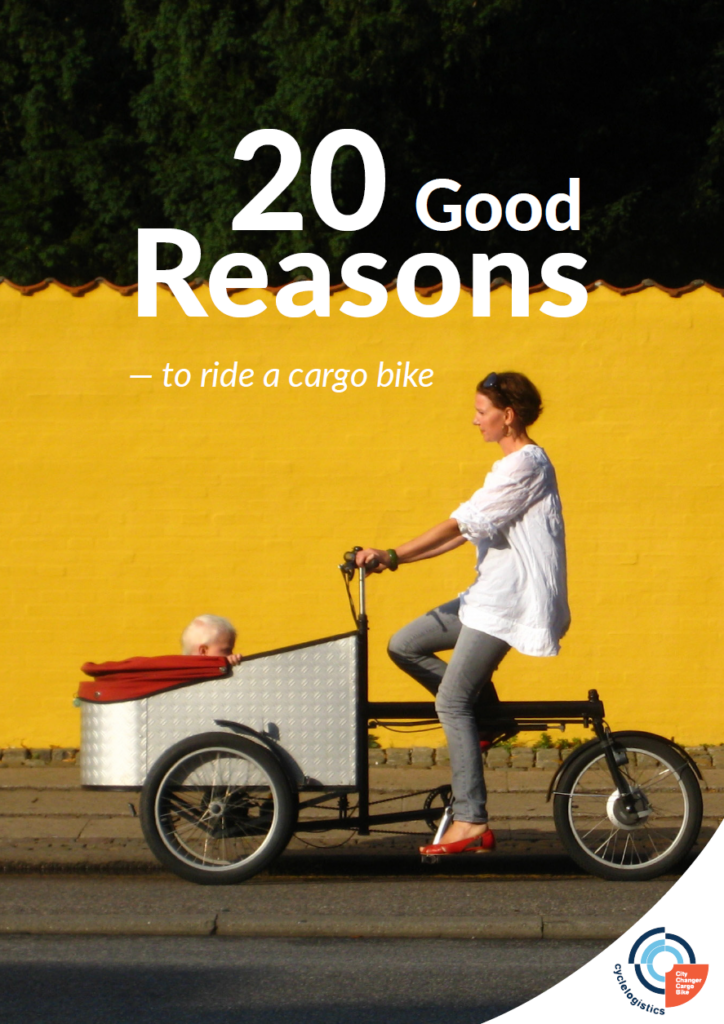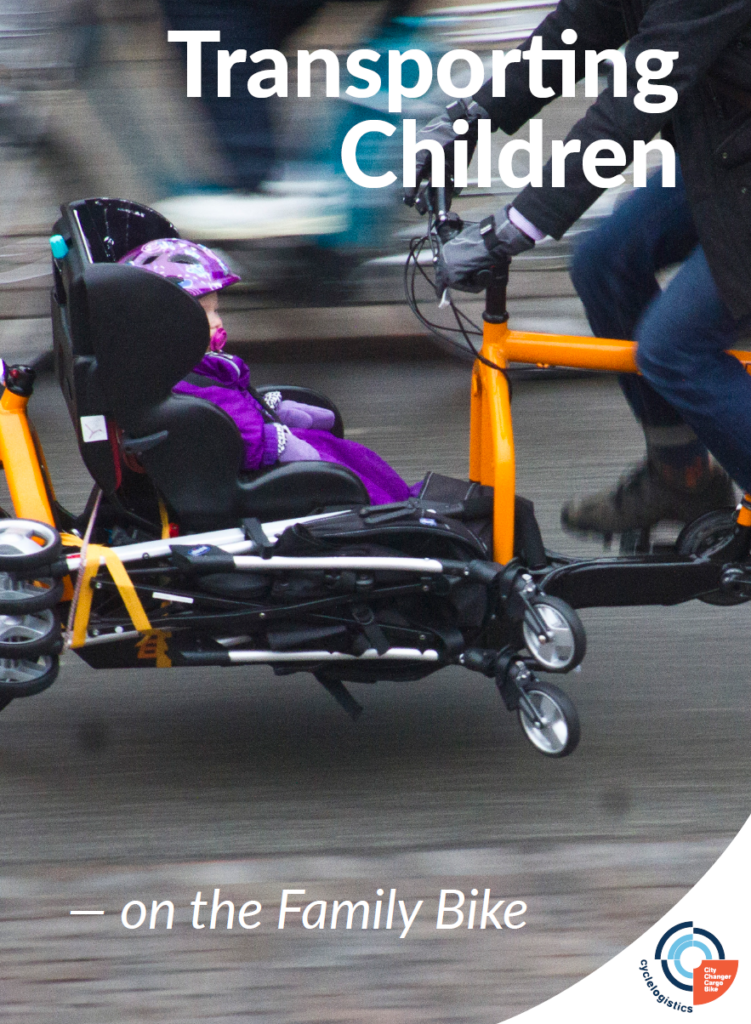Cargo bikes & cycle logistics
Jump to:
UK Cargo Bike Rider & Operator Codes of Conduct
and UK Cargo Bike Rider Training Standard
As an initiative to help professionalise the cargo bike logistics sector, the Bicycle Association has developed a national standard for cargo bike rider training, and UK Codes of Conduct for operators and riders.
These documents have been developed through extensive stakeholder consultation, and will be subject to regular revision. Feedback is welcome at any time via the form below (anonymously if you prefer) or please also feel free to send any feedback direct to the project co-ordinator, Peter Eland, on [email protected].
What is the Bicycle Association and why are you doing this?
The Bicycle Association (BA) is the UK cycle industry trade association, with around 150 member companies including cargo cycle suppliers and many cycle logistics operators. The BA works to grow the cycle market as a whole and is entirely self-funded. We believe this makes us well placed to co-ordinate this initiative as a “neutral broker”.
The aim is to ensure a level of behaviour and professionalism in the public realm which will enable cycle logistics (deliveries by cargo cycle) to fulfil its full potential as a significant mode of transport of goods, especially in cities, to help meet decarbonisation, congestion reduction and air quality objectives.
These documents are intended to be used:
- by actors in the sector (riders, operators)
- by public sector authorities who will have cycle logistics operations in their areas
- by public or private sector bodies procuring cycle logistics services (for example, by requiring commitment to the Codes of Conduct and training standard in tender documents).
We have a longer-term aspiration that these documents will in future form the basis of National Standards which underpin a formal cycle logistics rider qualification and training scheme, similar to that currently operated by Bikeability for child and adult cycling skills.
Background and work to date
From May to November 2023, the Bicycle Association engaged consultant Andrew Brown to co-ordinate the development of the Codes of Conduct and Training Standard. This work began with a scoping discussion among BA members and involving external stakeholders including Active Travel England, Bikeability Trust and Amazon.
Andrew then co-ordinated a core group of operations and rider training experts from Zedify, Hereford Pedicargo, PedalMe and the Bikeability Trust to create first drafts of the document. After a first round of feedback, second drafts were published in July 2023, and then third drafts in September 2023, fourth drafts in April 2024 and the current documents were released in May 2024, following further stakeholder feedback.
Who else is being consulted?
We have done our very best, within our resources, to take these drafts to a wide range of stakeholders:
- All of the major UK national and regional transport authorities (including Department for Transport, Transport for Scotland, Transport for Wales, Transport for London, Transport for West Midlands, Transport for Greater Manchester)
- Police
- Major logistics operators (including e.g. Amazon, Royal Mail), many of which now use cycles in their operations
- Cycle logistics riders
- Leading academics in the field
- The wider cycle industry
Many thanks to all who contributed feedback!
What are the short and longer-term objectives?
In the short term we hope to achieve wide consensus on these documents and for them to be used UK-wide. The aim is to agree on a single national standard and code of conduct, to avoid regional or local duplication.
This is about improving standards, safety and behaviours to promote the growth of the cargo bike logistic sector and upskilling of its riders, many of whom will be self employed.
Our longer term aspiration is for this project to lead in time to a formal national training and qualification framework for cargo bike riders and operators - ideally based around Government-maintained National Standards and operated in a similar manner as the Bikeability programme for general bike users.
So this Code of Conduct and Training Standard is in effect a staging post towards the eventual outcome of a full Bikeability-like programme.
Download the documents
You can download the current documents here.
These are the first released edition of the documents, published May 2024. Feedback is welcome at any time.
UK Cargo Bike Rider and Operator Codes of Conduct:
UK Cargo Bike Rider Training Standard:
Provide your feedback
We highly value your input and feedback to help improve the current documents. Please provide feedback at any time.
You can submit feedback:
- Using the form below. You are welcome to provide this anonymously if you wish, or to give your name and organisation.
- or direct to the project co-ordinator, Peter Eland, on [email protected].
Introduction
The Bicycle Association (BA) is the UK’s cycle industry trade association, with ca. 150 member companies, including numerous cycle logistics operators following our merger with the UK Cycle Logistics Federation.
Member companies with a particular interest in cargo bikes and cycle logistics come together in the Cargo Bikes & Cycle Logistics Expert Group, which helps the BA prioritise its work programme in this area.
Current priorities include:
- Development of national Rider and Operator Codes of Practice
- Development of a national cargo bike rider training framework
- Opening and developing new markets, with an initial focus on the Facilities Management (FM) and Commercial Real Estate (CRE) sectors.
- Developing this web page as a resource for all stakeholders in growing the sector
We very much welcome all companies with an interest in this sector to join the BA and to be part of this and future work. Our programme is being led by the BA’s Peter Eland – please use the website chat function or the contact us page if you would like to get in touch.
UK cargo bike regulations
In the UK cargo cycles and e-cycles are treated in law as ‘not motor vehicles’ only if they are either propelled purely by the rider’s pedal power or if they meet the clear criteria for Electrically Assisted Pedal Cycles (EAPCs) – including max continuous rated motor power of 250W, motor assist cuts out at 15.5 mph, and (unless type approved) the rider must be pedalling for the motor to assist at above 6 km/h.
Not being treated as motor vehicles means that cargo bikes and e-bikes can use cycle lanes, and no DVLA registration, mandatory insurance, driving licence etc. requirements apply, although for e-bikes, the rider must be over 14. Wearing a helmet is not mandatory. All Highway Code provisions for cycles apply to cargo bikes and e-bikes.
If used at night, cargo cycles (and trailers, if used) must also comply with UK lighting requirements.
Some regulatory ‘edge cases’ such as electric-assisted cargo cycles where the 250W is split across multiple motors, vehicles with “digital drive” or series hybrid technology, and electric-assisted trailers, are discussed in the BA Guide to e-bike regulations.
All cargo cycles and trailers must also comply with UK product safety legislation. The Bicycle Association has summarised the full list of product related legislation applicable to e-bikes, including e-cargo bikes.
Evidencing safety to meet legal requirements normally includes testing to recognised standards. Cargo bike standards already exist in Germany and France, and a new seven-part European cargo bike standard (which will also be adopted as a British Standard) is approaching publication this year.
There are currently no legal limits on wheel count, weight or size for cargo bikes or trailers in the UK.
However, discussions at EU level are exploring whether the industry should advocate (ahead of possible regulations being imposed on it) weight and/or size limits above which some form of type approval would be a more appropriate framework. A final position is not yet agreed, although it seems likely that the dividing line may well be based around the highest gross vehicle weight covered by the upcoming European cargo bikes standard, 600 kg.
Although any change to EU regulations is some way off, countries including the Netherlands and France have already stated an intention to potentially impose new national restrictions on some cargo cycles (and indeed, across the EU and beyond, certain countries do already have national restrictions on e.g. max width for using cycle lanes).
Future regulation of light electric vehicles (including e-bikes, e-cargo cycles, e-scooters and similar) is also a ‘live’ issue for the UK, and the BA is closely engaged in these discussions, although no legal change is expected in the near future (UPDATE March 2024 – a consultation has been launched around changing the UK’s e-bike regulations which could affect electrically-assisted cargo cycles – more details here).
The UK cycle industry is also represented through the BA and our international industry umbrella bodies CONEBI and WBIA at the United Nations in Geneva where discussions have been ongoing about e.g. updating the UN definition of a cycle (with a new “wide carrier cycle” class recently proposed) and, for example, discussion whether cargo cycles should be brought into the scope of ADR (the carriage of dangerous goods by road regulations).
The Bicycle Association keeps member companies fully informed and (if they wish) directly involved with all such discussions, as well as participating directly in standards development and engaging in regular dialogue with UK regulators and legislators.
Any company with an interest in cargo bike regulation is invited to join the Bicycle Association.
General info, research and guidance
- October 2023: Biking the Goods: how North American cities can prepare for and promote the large scale adoption of cargo e-bikes: USA-based guidance aimed at urban planners from the Urban Freight Lab at the University of Washington.
- August 2023: Thames Freight Infrastructure – Design Guidelines for Piers contains detailed guidance on making river freight facilities cycle-logistics friendly. Published by a consortium including Port of London Authority, TfL, Beckett Rankine, Cross-River Partnership and DEFRA.
- August 2023: Just Economics, Team London Bridge and Impact for Urban Health have published the final report on the Bikes for Business initiative, which saw 150 businesses switch to using cycle logistics – with recommendations for policy.
- March 2023: TfL has launched the “London Cargo Bike Action Plan”
- 2023: Just Economics, Team London Bridge and Impact for Urban Health have published “Delivering Value – A quantitative model for estimating the true cost of freight via three transport modes“
- Jan 2023: FareCity has released a report about how cycle logistics and other measures can provide clean transport for open-air markets.
- Jan 2023: University of Westminster Active Travel Academy has published “Delivering Good Work: Labour, employment and wellbeing in London’s cargo bike sector”
- December 2022: The Green Alliance has published “Sharing the Load: the potential of e-cargo bikes”
- June 2022: The influential World Economic Forum has published a report supporting the decarbonisation potential of cargo bikes.
- August 2021: Possible, Westminster ATA and the KR Foundation have published “The Promise of Low Carbon Freight – Benefits of cargo bikes in London” – available here
- 2020: DfT/EST have published “Electrifying last mile deliveries – a guide for businesses” (download here) and “Electrifying the last mile – a guide for local authorities” (download here).
- July 2019: “Potential for e-cargo bikes to reduce congestion and pollution from vans in cities” from Transport for Quality of Life (commissioned by the BA) – available here
For individuals
Cargo bikes are a fast-growing choice for individuals and families for personal use. This section signposts resources and introductions for non-commercial users.



For cycle logistics operators
- Coming soon
For companies (who may wish to use cycle logistics)
- August 2023: Just Economics, Team London Bridge and Impact for Urban Health have published the final report on the Bikes for Business initiative, which saw 150 businesses switch to using cycle logistics – with recommendations for policy.
- 2020: DfT/EST published “Electrifying last mile deliveries – a guide for businesses” (download here)
- More coming soon
For the public sector (cycle logistics hosts)
- October 2023: Biking the Goods: how North American cities can prepare for and promote the large scale adoption of cargo e-bikes: USA-based guidance aimed at urban planners from the Urban Freight Lab at the University of Washington.
- 2023: TfL has a Guidance Note on cycle logistics friendly access barrier design: download here
- 2023: Cargo Revolution has launched the “Borough Charter” – a concise five-point plan for local authorities to foster cycle logistics: download here
- 2023: TfL has launched the “London Cargo Bike Action Plan” an approach supported by the BA that other cities and transport authorities can learn from
- 2023: Cargo Bike Share Toolkit – Lessons on Running a Public Hire Service for Cargo Bikes – guidance from Hackney Council, Steer and Zero Emissions Network: download here
- 2020: DfT/EST published “Electrifying the last mile – a guide for local authorities” (download here).
- City Changer Cargo Bike: “Mayor’s Guide to cargo bikes” does exactly what it says on the cover: here and has valuable examples and ideas for every mayor wishing to advocate wider use of cargo bikes
- City Changer Cargo Bike: “A Guide to Planning Cyclelogistics hubs“: here
- Team London Bridge, “bikes for business“, is a scheme showing what can be done by the public sector the private sector: here
- BA member, Daniel Bianco, of Brighton & Hove Council, has worked closely with MP Smarter Travel to make the Sussex town a greener, cleaner space thanks to the increased use of cargo bikes as shown in this case study: here
For FM & CRE professionals
Resources for Facilities Management and Commercial Real Estate professionals
- March 2023: substantial article in workplace publication IN Magazine – access it here
- TransportXtra article 13th Jan 2023: Cargo bikes are coming – business needs to learn to love them – and you can view the associated webinar.

